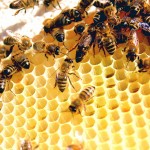Looking through the Greater Good Science Center‘s blog post on how to raise kind children, I was struck, as I usually am, by the somewhat counter-intuitive finding that we should not reward good behavior (helping in this instance).
Very young children who receive material rewards for helping others become less likely to help in the future compared with toddlers who only receive verbal praise or receive no reward at all. This research suggests that even the youngest children are intrinsically motivated to be kind, and that extrinsic rewards can undermine this tendency. – Carter (2010)
While I have not yet looked to see if there is any direct research on this topic with regards to adolescence, this is part of the Montessori philosophy. Lillard (2007; Ch. 5) has an entire chapter on Extrinsic Rewards and Motivation that gets to the same point. She cites the research that gets to the specific point that extrinsic rewards, rewards that come from the outside such as praise, tend to demotivate once the rewards are removed.
Engaging in a well-liked activity with the expectations of a reward led to reduced creativity during that activity and to decreased voluntary participation in that activity later. (Lepper et. al., 1973) in Lillard (2007; Ch. 5)
Rewards have negative effects when they are clearly stated, expected, and tangible; read this book and you’ll get $5; or do this work and you will get better grades. However, rewards can work if you’re dealing with subjects that students find uninteresting and there is a very clearly specified set of steps that they can learn by rote.
“[R]ewards are often effective at the moment of their offering, so if there are no long-term goals, rewards help without causing harm down the road.” Lillard (2007; p. 157)
Rewards can help with basic learning, like memorizing facts, but intrinsic motivation is essential for tasks that require higher-level more creative thinking.
I try to praise or give tangible rewards very rarely, though it is often hard. Students look for praise sometimes (and sometimes for the oddest things), so when I do complement I try to use what Carter calls growth-mindset praise and say something like, “See, practice really pays off.” Praise the effort, not some intrinsic value the students have.

